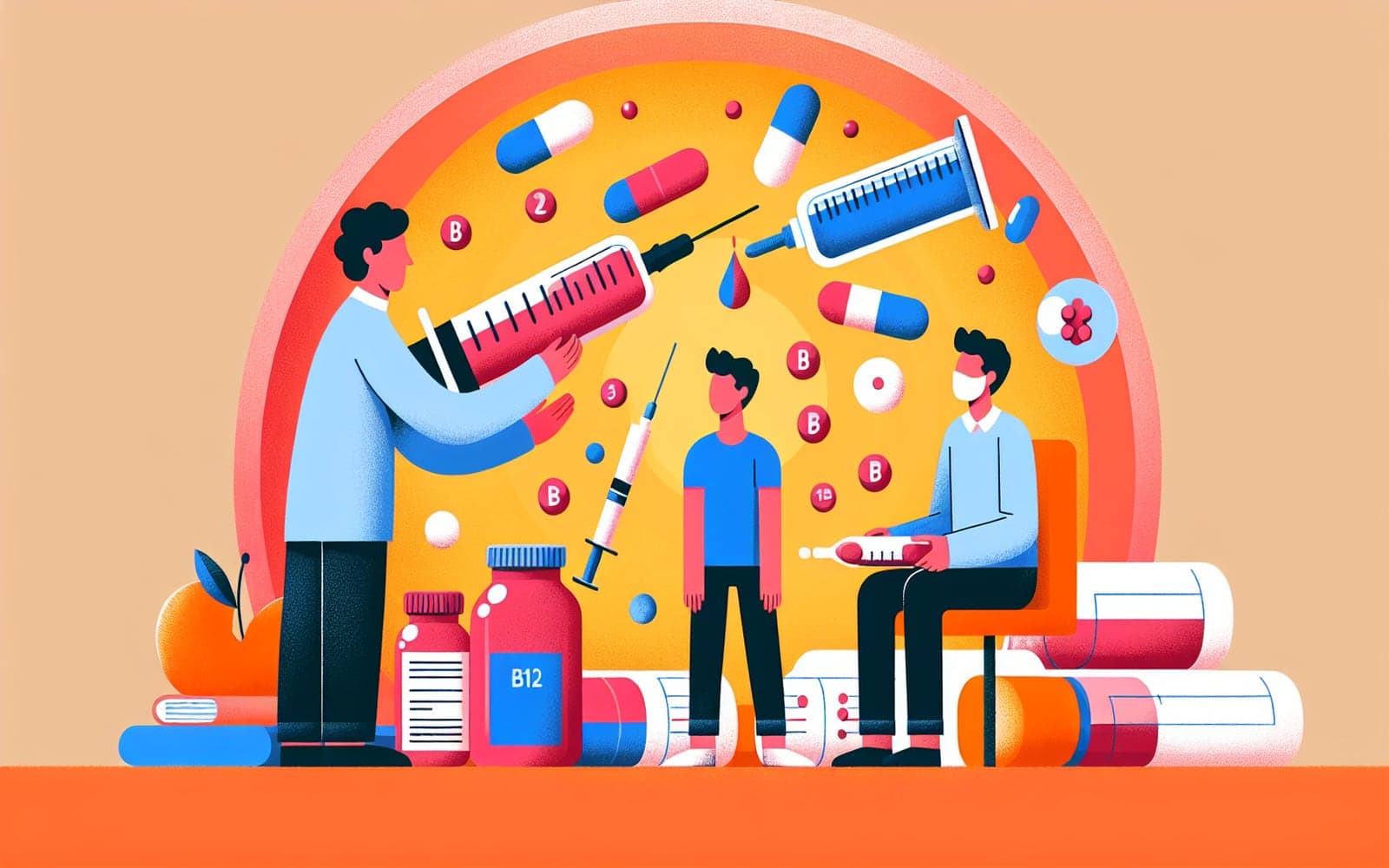Treating B12 Deficiency: From Shots to Supplements - What's Right for You?
Published: Jul 09, 2024
Treating vitamin B12 deficiency isn't one-size-fits-all. The right approach depends on the cause and severity of your deficiency, as well as your overall health.
Contents
Injection vs. Oral: The Great Debate
B12 injections have long been the gold standard for treatment, especially for severe deficiency or absorption issues. They bypass the digestive system, ensuring the vitamin reaches your bloodstream. However, high-dose oral supplements can be equally effective for many people. Recent studies show that oral doses of 1000-2000 mcg daily can work well, even for those with pernicious anemia, unless there are active neurological symptoms.
Tailoring Treatment to the Cause
The underlying cause of your deficiency guides treatment duration. For dietary deficiency, short-term supplementation and diet changes may suffice. Those with pernicious anemia or certain gastrointestinal disorders often need lifelong treatment. If medications are causing your deficiency, your doctor might adjust dosages or switch to alternatives when possible, alongside B12 supplementation.

Beyond B12: Addressing Related Deficiencies
B12 deficiency often coexists with other nutritional gaps. Your doctor might recommend folate supplements, as B12 and folate deficiencies frequently occur together. Iron levels are also commonly checked, as B12 deficiency can mask iron deficiency anemia. A comprehensive approach ensures all nutritional bases are covered for optimal health recovery.
Monitoring and Adjusting Treatment
Regular blood tests are crucial to track your B12 levels and overall health during treatment. Your doctor will monitor your complete blood count, looking for improvements in anemia. Neurological symptoms are also assessed, though they may take longer to resolve. Treatment plans are often adjusted based on these results, with the goal of maintaining healthy B12 levels long-term.
Frequently Asked Questions
Blood levels improve within days, but full recovery can take months.
Side effects are rare, but some people experience mild acne or skin reactions.
B12 is considered safe even in high doses, with excess typically excreted.
Over-the-counter options exist, but prescription-strength may be needed for deficiency.
Most symptoms improve, but some neurological effects may be permanent if treated late.
The Road to Recovery
With proper treatment, most people with B12 deficiency can fully recover and maintain healthy levels long-term.
References
- Stabler SP. Clinical practice. Vitamin B12 deficiency. N Engl J Med 2013; 368:149.
- Hunt A, Harrington D, Robinson S. Vitamin B12 deficiency. BMJ 2014; 349:g5226.
- Green R. Vitamin B12 deficiency from the perspective of a practicing hematologist. Blood 2017.
This article has been reviewed for accuracy by one of the licensed medical doctors working for Doctronic. Always discuss health information with your healthcare provider.
AI Doctor Visit Required
Appointments available 24/7
15-min consultation. No hidden costs.
AI Doctor Visit Required
For safety reasons we have been forced to end this consultation.
If you believe this is a medical emergency please call 911 or your local emergency services immediately.
If you are experiencing emotional distress, please call the the Suicide & Crisis Lifeline at 988 or your local crisis services immediately.
Contact us
You can also email us at help@doctronic.ai
We aim to reply within 5-7 days
How likely are you to recommend Doctronic to friends or family?


